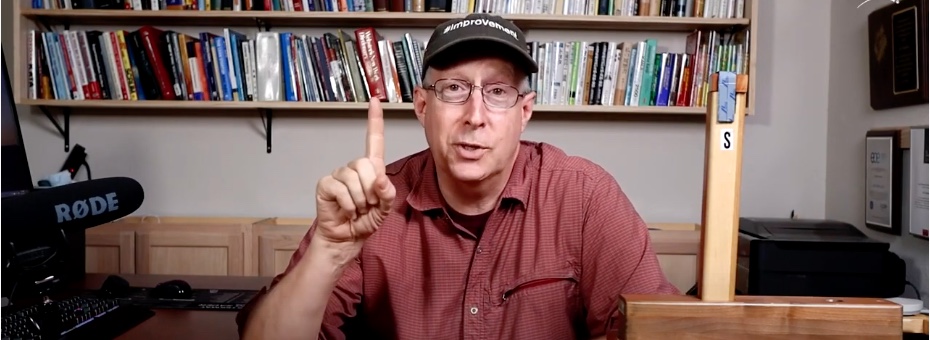Part seven of eight. Watch the others:
- Part one, A Focus on Muda
- Part two, Overproduction
- Part three, Excess Inventory
- Part four, Excess Conveyance
- Part five, Motion
- Part six, Waiting
- Part eight, Processing
Hi everyone. I’m Art Smalley, president of Art of Lean, Incorporated. Today, on behalf of the Lean Enterprise Institute, we’re going to do a series of short video clips–each one about the seven classic forms of waste from the Toyota Production System. Stick around. I think you’ll enjoy them.
Waste No. 6. Let’s call this one the waste of defects. Over the years, it has been called a number of things. It started off being called the waste of defects inside of Toyota. It means scrap, rework, or any nonconformance that gets created—none of that is value-add, none of that desired by the customer; it’s subtracting from your bottom line and causing frustration.
Defects can occur in many different forms, so you need to be very inclusive when you think about this; it can be in raw material form that, you know, comes from a supplier in nonconformance. It can come in purchased parts from a supplier that aren’t exactly right to the specifications that we need. It could be internal parts that we made that might have little processing defects or things that are unacceptable, or we have to rework a second time in order to get right. Or it can be, of course more dangerously, in our finished goods, higher up the value chain when it’s nearly complete, and we put more time and energy into it. And then, God forbid, something that gets to customers and causes problems at their end.
The farther it goes down the stream, the worse it is for our reputation, the higher it is in terms of cost, and the greater the waste is from an overall perspective. Now, I’ve listed this waste as number six, but frankly, you can make a good argument that it’s No. 1 or No. 2. Why is that? Well, think of the Toyota Production System and its original pillars. One is just in time, the other’s jidoka, for building quality. The oldest of the two is actually jidoka, make it right the first time, building quality at the station. That’s older than the just-in-time pillar. So, if you want to start with this [waste of defects] as No. 1, and then have the second, third, fourth, and fifth off that, fine by me.
Toyota said overproduction is the worst, so I’ve always had that first, but you know, we can debate these things. And it does, in reality, it does immensely depend upon the environment and place you’re in. I’ve been in factories that said Art, I would love to be able to overproduce right now. We’re under–producing like mad. We can’t keep up with our schedules, or we’re supplier-constrained or capacity-constrained. We can barely get things out on time. It would be a dream if I could overproduce right now. Their problem, in many of those facilities, part of their constraint problem, is quality. Something from a supplier, something from an internal manufacturing process, something from a final assembly or shipping point of view, isn’t going right. And that is a huge waste that stops them from achieving their annual plans, goals, and things like that.
And frankly, nobody likes defects. Customers don’t, employees don’t, and, of course, professionals in the field and the quality field don’t. Nobody likes defects. We all know they subtract from the bottom line. They’re a huge waste. And even though I’m listing it at number six, you got to argue when you realize this is either No. 1 or No. 2, in terms of affecting your company’s bottom line and causing problems overall.
Nothing’s worse than the cost of quality, the cost of nonconformance, the total cost and yield losses, and things that often come lumped under this. It is a huge waste, an immense area of opportunity for improvement. Sometimes there are little things you can do. Sometimes there are deeper, what I call type–two problems that have to be solved with root cause analysis, but make no mistake. The waste of a defect correction, rework repair in any form is a horrible waste and something you have to focus on to show your customers that you care and your employees that you care about making things better.
Kaizen Bundle
Perfect your lean process improvement knowledge and skills.






